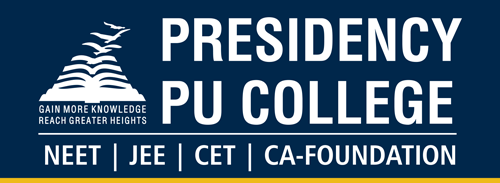July 15, 2025
How Studying Isn’t Just for Exams but it is important for Life
For many students, studying often feels like a task reserved only for exam time something to be endured rather than enjoyed. But in reality, studying goes far beyond grades or report cards. It is a habit that builds the foundation for lifelong learning, equipping the students of best PU colleges in Mangalore with the tools they need not only for academic success but for personal and professional growth throughout life.
In today’s fast-evolving world, where future skills and adaptability matter more than ever, developing a love for learning is crucial. Whether a student is in school or preparing for college at one of the top PU colleges in Mangalore, the benefits of studying stretch well beyond the classroom.

1. Beyond Grades: The Real Purpose of Studying
Grades matter, but they are only part of the bigger picture. The real value of learning lies in developing curiosity, understanding new concepts, and gaining a broader perspective on the world. Regular study fosters a learning culture, turning the pursuit of knowledge into a habit that lasts well into adulthood.
By moving beyond the mindset of “study only for exams,” students begin to see education as a lifelong companion.
2. Building Critical Thinking and Problem-Solving Skills
Studying is not just about memorizing facts; it is about learning to think critically, analyze problems, and find creative solutions. These problem-solving skills are vital in everyday life whether managing personal decisions, navigating relationships, or tackling real-world challenges in the workplace.
When students consistently engage with different subjects, they sharpen their minds and become better equipped to handle complexity with confidence.
3. Studying Teaches Discipline and Commitment
One of the most overlooked benefits of studying is the development of discipline and commitment. Creating and following a study routine requires planning, focus, and perseverance qualities that are essential for personal development.
This consistent practice builds habits that help students stay committed to goals, meet deadlines, and push through challenges, even outside of academics.
4. Gaining Knowledge to Make Informed Decisions
Knowledge empowers people to make better decisions in everyday life. From managing finances to choosing careers or understanding health and society, informed decision-making comes from the habit of learning.
Studying opens minds and fosters awareness, enabling students to evaluate information critically and make choices that positively impact their lives and communities.
5. Developing Time Management and Planning Abilities
Studying teaches students how to divide time effectively between tasks, prioritize, and plan ahead. These are key future skills that translate directly into adult responsibilities whether balancing work and family or managing long-term projects.
By learning to manage time early through structured study habits, students prepare themselves for the demands of college, careers, and beyond.
6. Improving Focus and Patience Over Time
In a world full of distractions, the ability to concentrate is becoming rare and valuable. Studying regularly builds focus, helping students train their minds to stay on task for extended periods. It also cultivates patience, especially when tackling tough subjects or working through challenges.
These traits are not only essential for exams but also for success in every sphere of life from careers to personal relationships.
7. Applying What You Learn in Daily Situations
Whether it is calculating discounts while shopping, understanding political issues, or managing time better, the knowledge and skills gained from studying often come in handy in daily life.
When students are encouraged to connect what they learn with the real world, they begin to understand the impact of learning far beyond the classroom walls.
8. Boosting Self-Confidence Through Knowledge
Confidence comes from knowing you are prepared. When students study and truly understand a subject, it strengthens their self-esteem and confidence. This self-assurance spills over into public speaking, interviews, group projects, and decision-making.
A confident learner is more likely to try new things, ask questions, and take initiative traits that support lifelong success.
9. Learning to Learn
In the modern world, change is constant. New technologies, industries, and roles emerge every day. Students who study not just to pass exams but to learn how to learn become adaptable individuals who can grow with change.
Whether pursuing further education in one of the best PU colleges in Mangalore for commerce or taking up new skills on the job, this adaptability is key to professional development.
10. Preparing for Lifelong Success, Not Just Tests
Ultimately, studying is not just a means to an academic end it is a tool for personal and lifelong success. The habits, skills, and mindset cultivated through study prepare students to face life’s uncertainties with resilience, clarity, and strength.
By shifting the focus from exams to growth, we help children become learners for life capable, curious, and ready for the future.
Lifelong Learning at Presidency PU College Mangalore
At Presidency PU College Mangalore, we nurture a learning mindset that extends beyond test scores. Whether guiding students at the school level or preparing them for higher education in the top 10 PU colleges in Mangalore, we focus on instilling the value of continuous learning and self-motivation. Through academic support, skill-building, and a strong focus on social emotional learning, we help students become confident, disciplined individuals ready to succeed in every area of life.
Final Thoughts
Studying is not just about preparing for the next exam it is about preparing for life. It builds discipline, knowledge, confidence, and critical thinking all essential tools for navigating the world successfully. The earlier students realize this, the more empowered they become to take ownership of their future.
So, let us redefine the way we look at studying. Let it be a practice not just of the mind, but of the heart, habits, and hope for lifelong success.

 LOGIN into MCB
LOGIN into MCB
